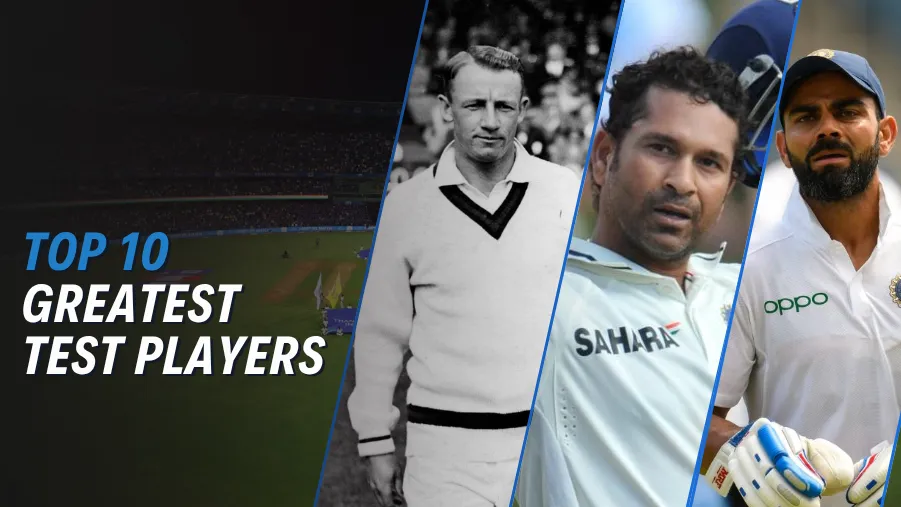Advertisement
Top 10 Smallest Cricket Stadium in the World (2026 Updated)
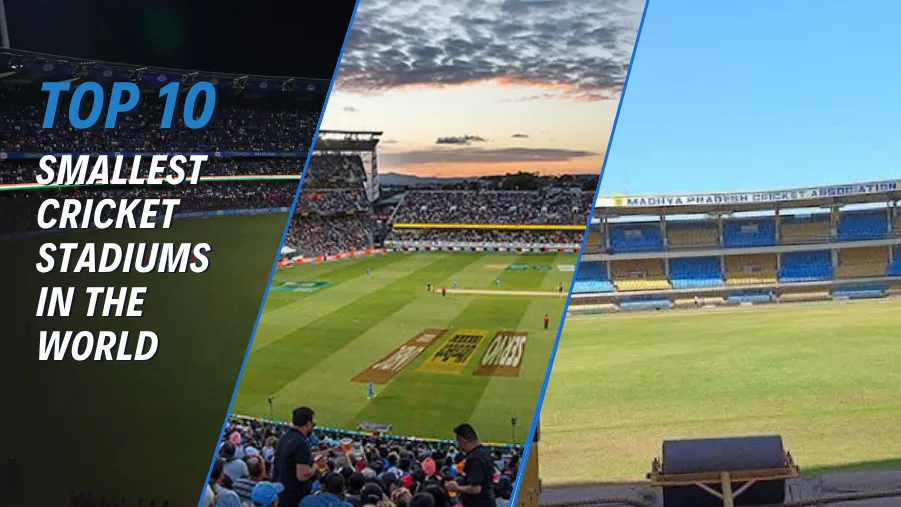
Summary
Stadiums have been an integral part of cricket in modern times. Nothing adds more excitement than a closely packed stadium with short boundaries, when every shot has the chance to hit the ropes. As of 2025, the worldwide cricketing environment contains a wide range of stadiums, some large and hosting massive spectators, others modest and small. The world's smallest cricket stadium has established a distinct identity.
Smallest Cricket Stadium in the World (Updated List)
The unique feature of the stadium around the world makes it distinct from other stadiums. There are many iconic stadiums which are known for the epic matches being held earlier, but those stadium comes under the smallest cricket stadium in the world. Here is the list of the top 10 smallest cricket stadium in the world, which will answer the question of which is the smallest stadium in the world.
| Rank | Stadium Name | Location | Seating Capacity | Boundary Size | Established |
|---|---|---|---|---|---|
| 1 | Eden Park | Auckland, New Zealand | 41,000 | 55 meters Straight | 1900 |
| 2 | Holkar Stadium | Indore, India | 30,000 | 56 meters Square | 1990 |
| 3 | Brabourne Stadium | Mumbai, India | 20,000 | 58 meters Square | 1937 |
| 4 | Dr. YSR ACA–VDCA Stadium | Visakhapatnam, India | 25,000 | 58 meters Square | 2003 |
| 5 | Newlands | Cape Town, South Africa | 25,000 | 63 meters Straight | 1888 |
| 6 | The Wanderers | Johannesburg, South Africa | 28,000 | 64 meters Square | 1956 |
| 7 | Eden Gardens | Kolkata, India | 68,000 | 65 meters Square | 1864 |
| 8 | Seddon Park | Hamilton, New Zealand | 10,000 | 65 meters Square | 1950 |
| 9 | Lord’s | London, England | 30,000 | 65 meters Square | 1814 |
| 10 | McLean Park | Napier, New Zealand | 10,500 | 66 meters Straight | 1952 |
Which is the World's Smallest Cricket Stadium?
Stadiums such as Eden Park in New Zealand and Holkar Stadium in India remind us of games in which batsmen appear nearly superhuman, smashing the ball into the stands with effortless skill. Small stadiums have played host to some of the most memorable and high-scoring matches in Cricket history. As mini-sized venues usually have a fast pace to them, and this is usually very entertaining to watch for the fans as well as to test the bowlers and captains.
The appeal of these stadiums comes from their capacity to transform any match into a spectacle. Each venue, from the ancient Newlands in South Africa to the bustling Brabourne Stadium in Mumbai, has a unique feature and flavour of the matches. They will continue to host international matches, T20 matches, and domestic matches after 2025, which makes them important to the cricketing environment. We rank them according to their Boundary Size.
10. McLean Park | New Zealand | Capacity-10,500
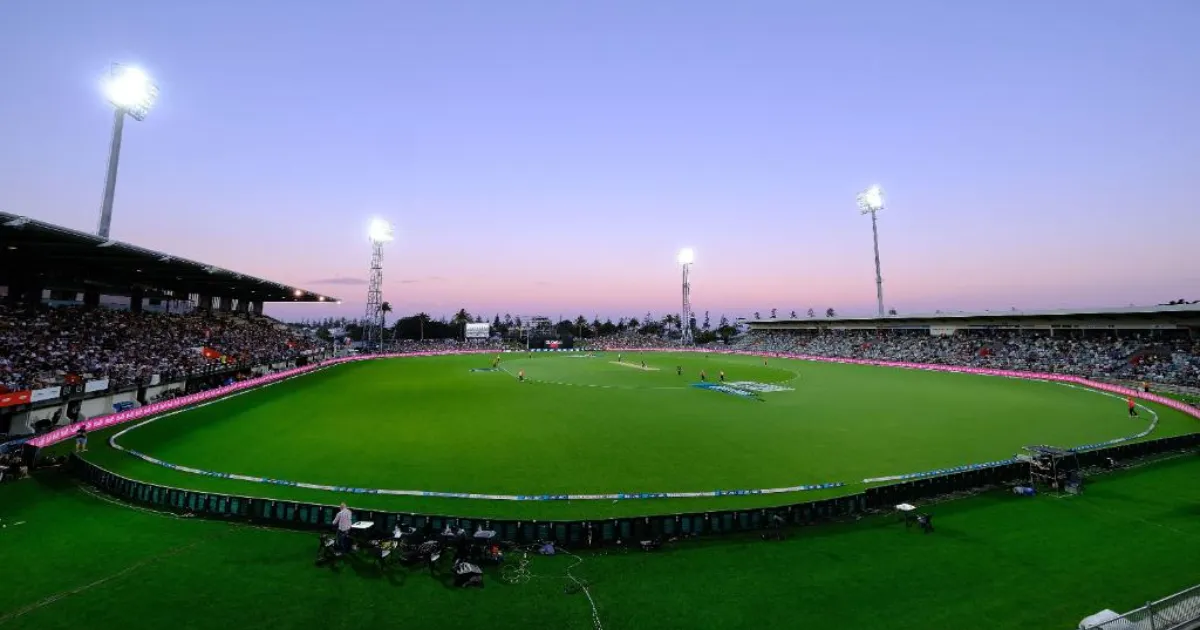
McLean Park is one of the smallest cricket stadium in the world, in particular in terms of boundary size. With square boundaries averaging 63 to 65 meters, the venue is a haven for attacking batters but a difficult test for bowlers, particularly spinners attempting to stem the flow of runs in limited-overs forms. The picturesque setting and fantastic cricketing crowd have witnessed some memorable ODI and T20I matches at the venue.
The crowd here witnesses high-scoring thrillers, with boundaries flying and sixes being hit effortlessly. The seating capacity of the stadium is 10,500. Fans enjoy the up-close view of the action, and it is one of the most fan-favourite stadiums in the country. The pitch at McLean Park is normally flat and batting-friendly, which adds to the difficulty bowlers encounter on this compact pitch. Whether it's a Super Smash game or a New Zealand international match, this stadium never fails to entertain.
| Attribute | Details |
|---|---|
| Also Known As | McLean Park |
| Established | 1952 |
| Capacity | 10,500 |
| Boundary Size | 66 meters |
| End Names | Embankment End, Centennial Stand End |
| Flood Lights | Yes |
| Home Teams | Central Districts, New Zealand |
| Association | Central Districts Cricket Association |
9. Lord's Cricket Ground | England | Capacity-30,000
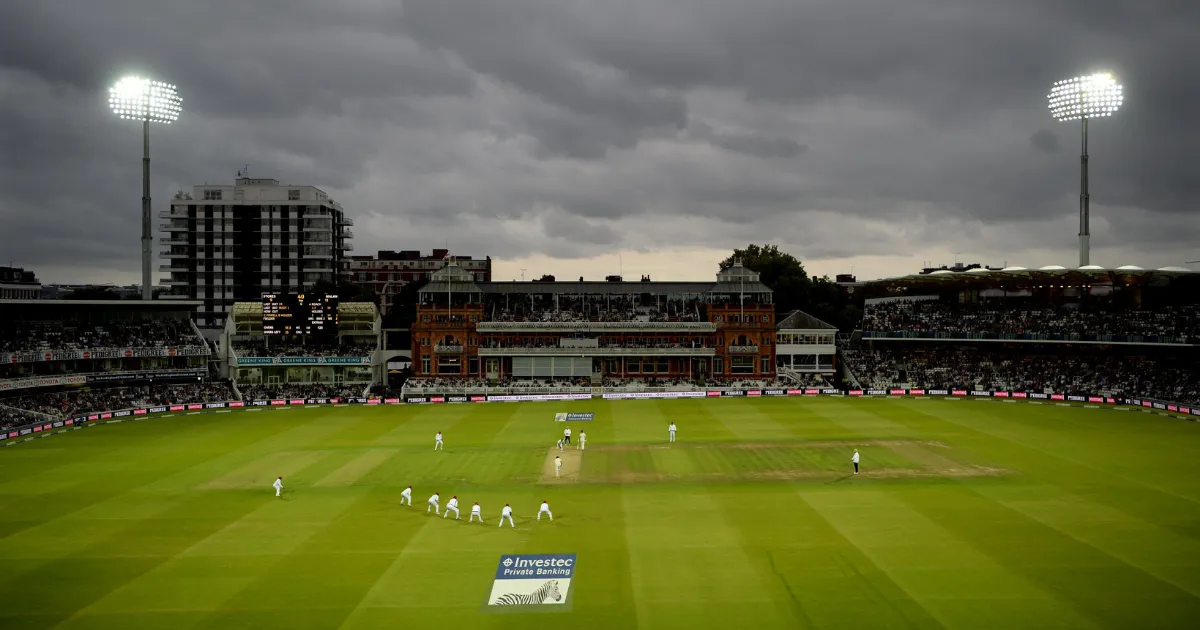
Lord's Cricket Ground in London, the iconic cricket stadium in England, is known as the "Home of Cricket" and has a rich history and heritage of the game. Fans will be surprised to learn that it is also one of the smallest cricket stadium in the world. Despite its historic pedigree, Lord's straight boundaries can be very small, ranging from 65 to 69 meters, making it a surprisingly batting-friendly stadium under the correct conditions. It was founded in 1814, is renowned for its famous pavilion, the slope across the ground, and its link with some of cricket's most epic moments.
In terms of size, however, it provides batters with a genuine possibility to clear the ropes, especially when aiming down the ground or towards the shorter sides. The seating capacity of the stadium is 30,000. The pitch initially favours swing bowlers, but once batters settle down, the smaller boundaries come into play. This has resulted in numerous high-scoring encounters, particularly in white-ball cricket. This ranks among the top 10 smallest cricket stadiums in the world.
| Attribute | Details |
|---|---|
| Also Known As | Lord's |
| Established | 1814 |
| Capacity | 30,000 |
| Boundary Size | 65 meters |
| End Names | Pavilion End, Nursery End |
| Flood Lights | Yes |
| Home Teams | Marylebone Cricket Club, Middlesex, England |
| Association | Marylebone Cricket Club (MCC) |
Advertisement
8. Seddon Park | New Zealand | Capacity-10,000
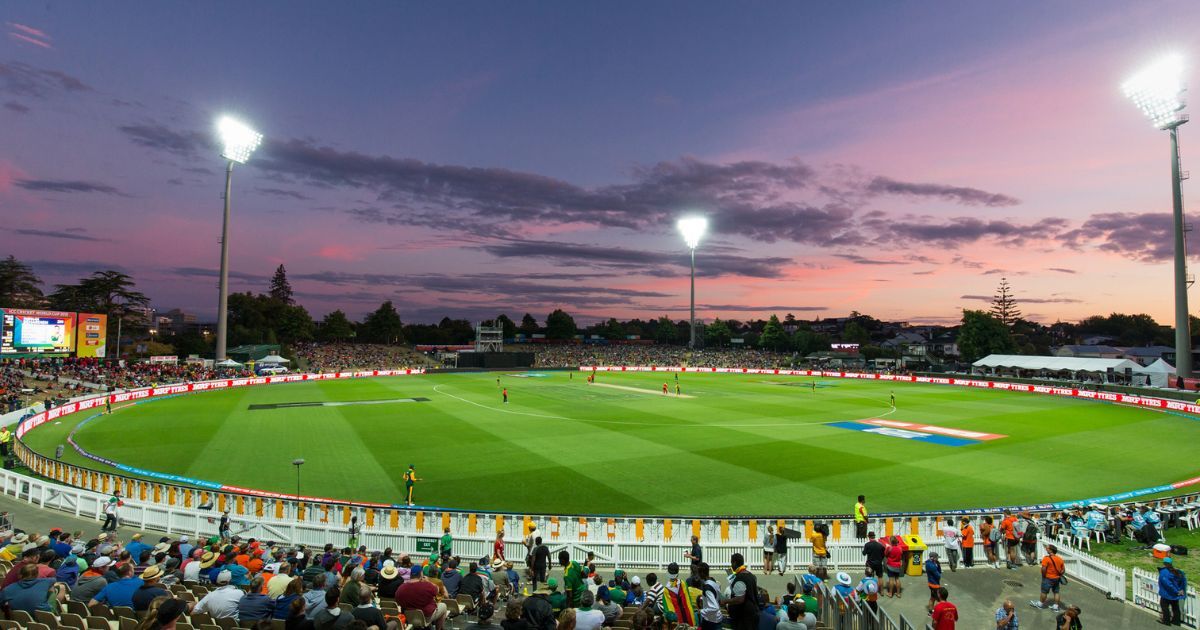
Seddon Park may not be as well-known as Lord's or the MCG, but it has established itself as one of the world's smallest cricket stadium. Seddon Park was established in 1950 and named for former Prime Minister Richard Seddon. It hosted its maiden international Test match in 1991, between New Zealand and Sri Lanka. With boundary sizes varying from 55 to 65 meters, this field is ideal for batsmen but a nightmare for bowlers, particularly in T20s and ODIs. The seating capacity of the stadium is 10,000.
This stadium is ideal for explosive batting, with even mistimed strokes frequently going over the ropes due to the tiny playing field. Its grassy embankments, rather than towering stands, provide fans with a calm, picnic-like viewing experience. Spin bowlers frequently struggle here due to the narrower boundaries, whereas power hitters excel. The surface is normally flat, and when combined with the short dimensions, it creates the conditions for exciting, high-scoring games.
| Attribute | Details |
|---|---|
| Also Known As | Trust Bank Park, WestpacTrust Park, Westpac Park |
| Established | 1950 |
| Capacity | 10,000 |
| Boundary Size | 65 meters |
| End Names | Members End, City End |
| Flood Lights | Yes |
| Home Teams | Northern Districts, New Zealand |
| Association | Northern Districts Cricket Association |
7. Eden Gardens | India | Capacity-68,000
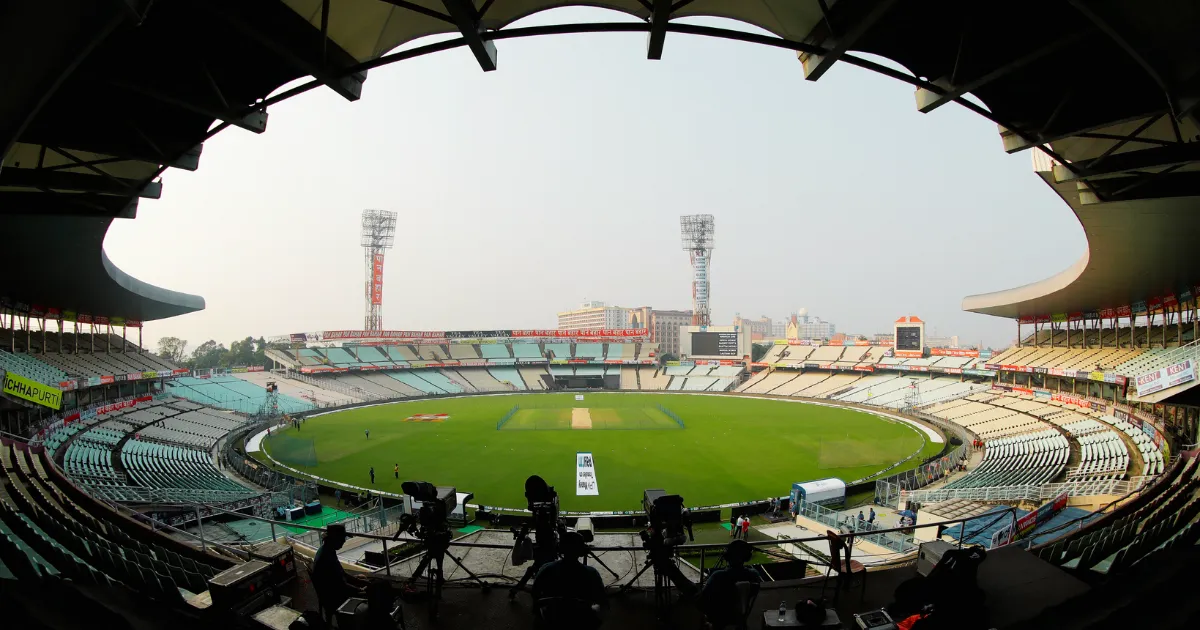
Eden Gardens is the oldest stadium in India, the second-largest cricket stadium in India, and one of the biggest cricket stadiums in the world in terms of seating. The stadium has a seating capacity of 68,000 fans. The Cricket Association of Bengal (CAB) currently operates the stadium. It has witnessed some of the greatest games in cricket history, from the 1987 World Cup final to the ICC T20 World Cup 2016 final and many IPL games as well. The stadium has excellent facilities and a passionate crowd, making it a great place for cricket.
Eden Gardens has also been described as “cricket’s answer to the Colosseum” and called the “Mecca of Indian cricket” because it was the first multi-purpose-built ground for the sport. But one of the disadvantages of this stadium is that it is one of the smallest stadium in India as per the boundary size. The venue hosted the first Test match between England and India in 1934. The first One Day International between India and Pakistan was in 1987.
| Attribute | Details |
|---|---|
| Also Known As | Eden Gardens |
| Established | 1864 |
| Capacity | 68,000 |
| Boundary Size | 65 meters |
| End Names | High Court End, Pavilion End |
| Flood Lights | Yes |
| Home Teams | Bengal, India, Kolkata Knight Riders (KKR) |
| Association | Cricket Association of Bengal (CAB) |
Advertisement
6. The Wanderers | South Africa | Capacity-28,000
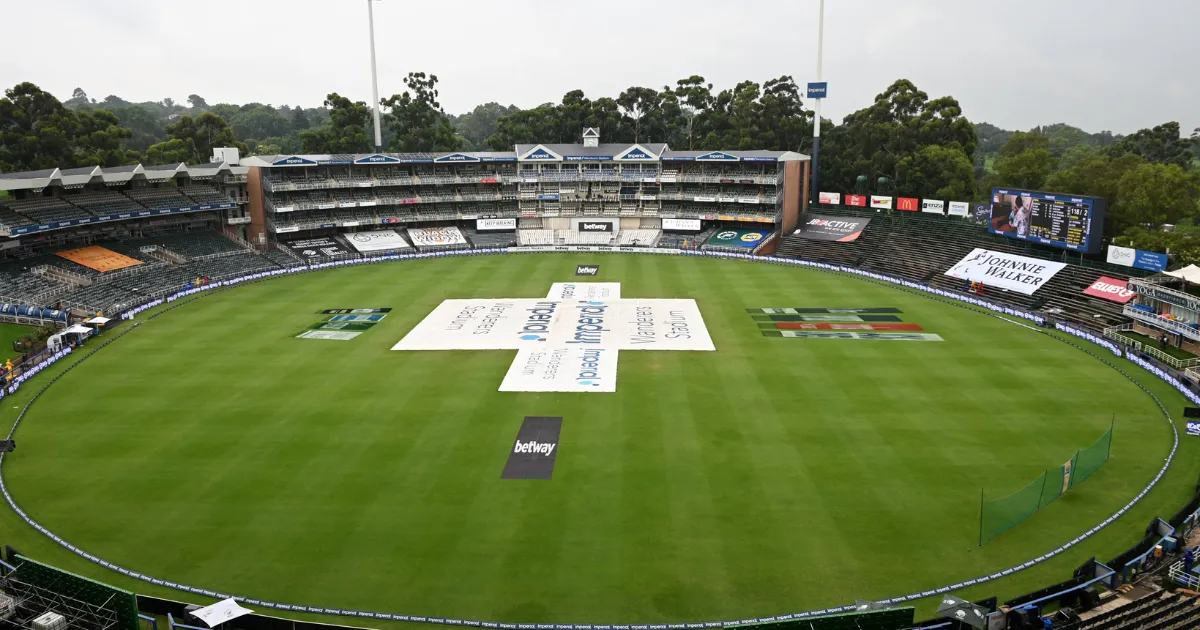
The historic Wanderers Stadium, known as “The Bullring,” is a venue rich in cricket history, located in Johannesburg, South Africa. Though well-known for its exciting atmosphere and fast-paced play, many spectators are astonished to hear that The Wanderers is also one of the world's smallest cricket stadium in terms of boundary size, particularly the square of the wicket. Its short, squared, and straight boundaries allow it to produce such high-intensity matches, and it is a dream for batters and a nightmare for bowlers on a flat surface.
Established in 1956, the stadium has hosted some of cricket's most dramatic matches, including South Africa's memorable 438-run chase against Australia in 2006, a contest that cemented its place in cricket history. With a seating capacity of roughly 28,000, The Wanderers may not be "small" in terms of crowd size, but its perimeter dimensions are as short as 64 meters.
| Attribute | Details |
|---|---|
| Also Known As | Kent Park |
| Established | 1956 |
| Capacity | 28,000 |
| Boundary Size | 64 meters |
| End Names | Corlett Drive End, Golf Course End |
| Flood Lights | Yes |
| Home Teams | South Africa, Imperial Lions and Joburg Super Kings. |
| Association | - |
5. Newlands Cricket Ground | South Africa | Capacity-25,000
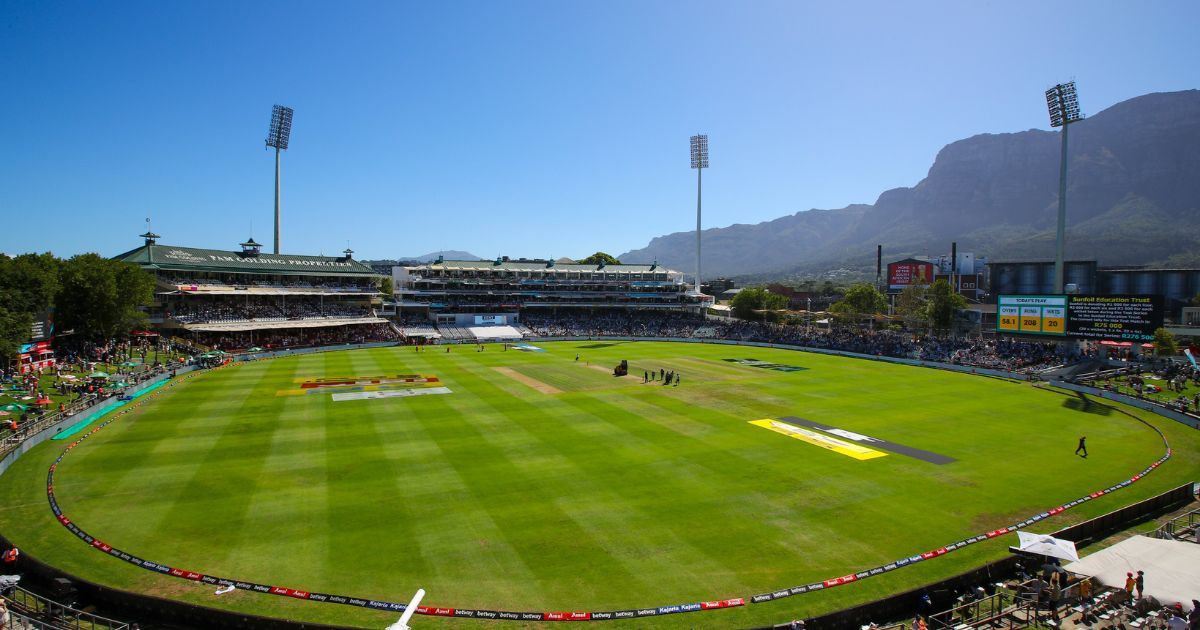
Newlands Cricket Ground is often regarded as one of the most beautiful cricket stadiums in the world. Aside from its postcard-worthy views, it is regarded as one of the smaller international cricket grounds in terms of boundary size, particularly towards the Pavilion and Railway ends. Newlands, founded in 1888, is steeped in tradition, presenting both domestic and international events with an environment that combines old charm and modern flair.
With only around 25,000 capacity, it has an electrifying atmosphere, especially at home matches for the Proteas. In any day cricket, it can be limited down to as little as 60-65 meters, which ideally favours spinners. The short boundaries are in contrast to the longer ones in T20 matches, and the course more than compensates for those with little distance in between them. This ranks among the top 4 smallest cricket stadiums in the world.
| Attribute | Details |
|---|---|
| Also Known As | Sahara Park, Newlands, Western Province Cricket Club |
| Established | 1888 |
| Capacity | 25,000 |
| Boundary Size | 63 meters |
| End Names | Wynberg End, Kelvin Grove End |
| Flood Lights | Yes |
| Home Teams | Western Province, South Africa, MI Cape Town |
| Association | Western Province Cricket Association |
Advertisement
4. Dr. YSR ACA–VDCA Stadium | India | Capacity- 25,000
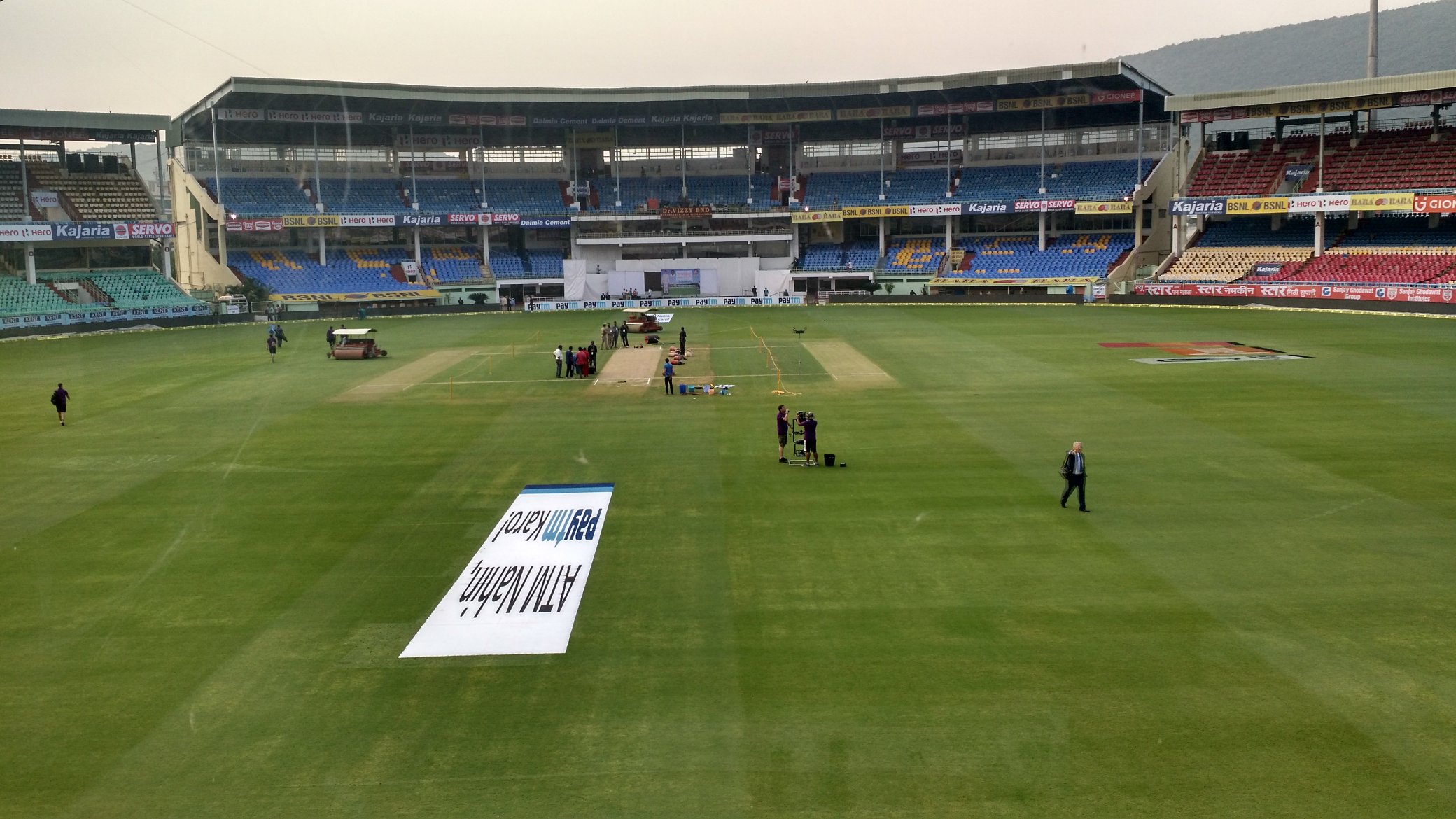
Dr. YSR ACA–VDCA Stadium is located in Vishakhapatnam, India, and is one of the smallest cricket stadium in the world. The stadium has a very small boundary, where it is only 58 meters to the square of the ground. The stadium is one of the smallest in terms of boundary size and even in terms of seating capacity, where it offers a capacity is 25,000.
The stadium has been a batting paradise for the players, where many high-scoring matches have been played. The batsmen enjoy the batting-friendly nature of the pitch and the small size of the ground. There have been international matches being played here, which have offered a thrilling experience to the fans.
| Attribute | Details |
|---|---|
| Also Known As | Vizag Stadium |
| Established | 2003 |
| Capacity | 25,000 |
| Boundary Size | 58 meters |
| End Names | DV Subba Rao End, PM Palem End |
| Flood Lights | Yes |
| Home Teams | India, Andhra Pradesh |
| Association | Andhra Cricket Association (ACA) |
3. Brabourne Stadium | India | Capacity- 20,000
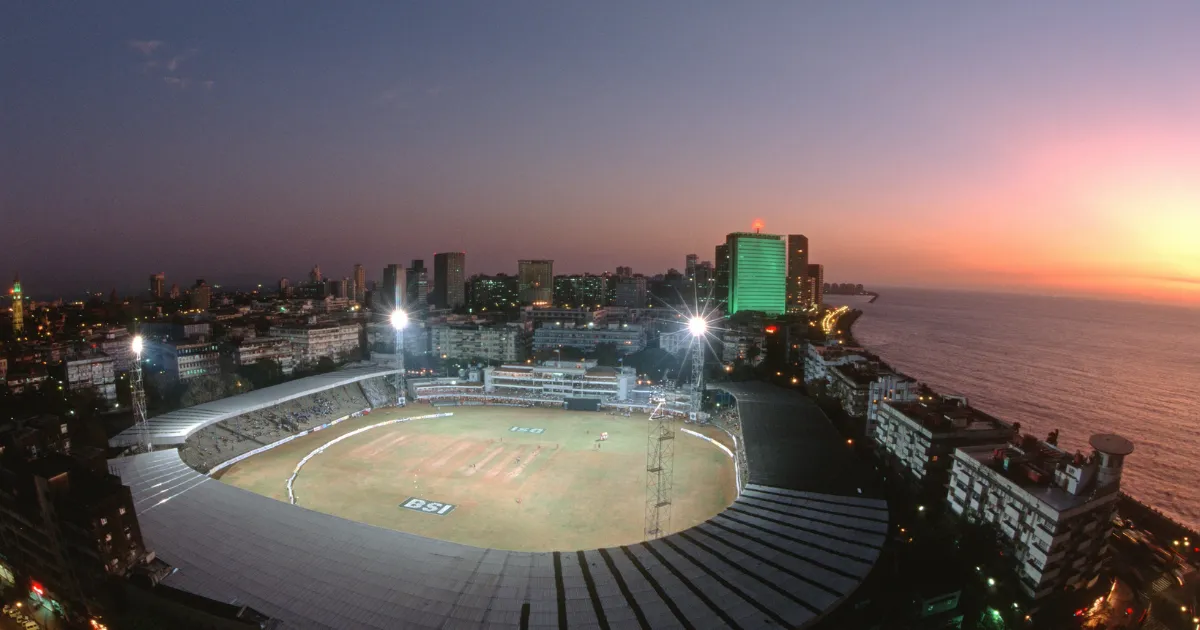
Brabourne Stadium is one of the smallest stadiums in India and comes in the third position on the list of the smallest cricket stadiums in the world. The boundary size of the stadium is 58 meters, which is due to the structure of the stadium like a square. The seating capacity of the stadium is also very less, where it can accommodate a maximum of 20,000 spectators inside the stadium.
The stadium has been one of the most scoring grounds in India, where batsmen take the benefit of the pitch and the size of the boundary, allowing them to score more boundaries. The stadium is also one of the oldest stadiums in India, where it was built even before the Wankhede Stadium, in 1937. This has hosted many international matches as well as the IPL.
| Attribute | Details |
|---|---|
| Also Known As | Brabourne Stadium |
| Established | 1937 |
| Capacity | 20,000 |
| Boundary Size | 58 meters |
| End Names | Pavilion End, Church Gate End |
| Flood Lights | Yes |
| Home Teams | Mumbai, India (part-time) |
| Association | Cricket Club of India (CCI) |
Advertisement
2. Holkar Stadium | India | Capacity-30,000
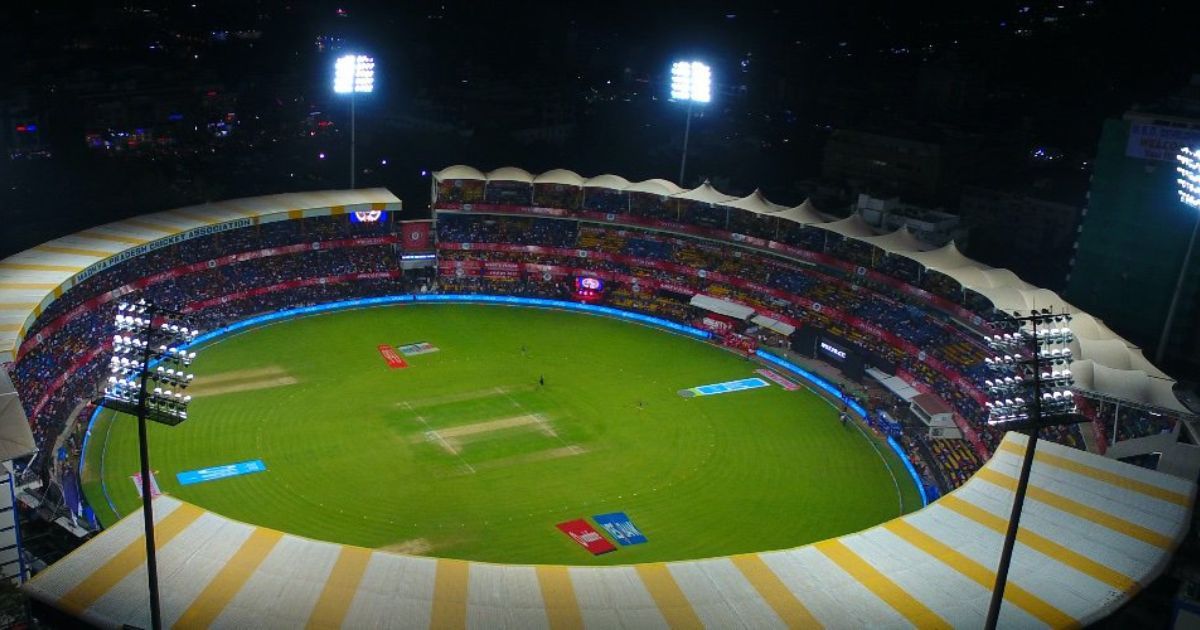
Holkar Cricket Stadium is undoubtedly one of the most thrilling stadiums in India. With boundary dimensions ranging from 55 to 65 meters, one of the smallest cricket stadium in the world by boundary. This is a dream stadium for big hitters but a challenge for bowlers who must work hard to limit scoring. The stadium can host nearly 30,000 spectators. It may be small in size, but it provides a lot of support when it comes to hosting high-octane cricket matches.
Its short square borders make it more explosive during T20 and ODI matches, where sixes and boundaries fly in, much to the delight of the crowd. Holkar Stadium has hosted notable international matches and is also the home field of the Madhya Pradesh cricket team. The pitch at Holkar Stadium is particularly batting-friendly. The flat surface and speedy outfield complement the small boundaries, resulting in scores of more than 200 in T20s and 300 or more in ODIs. Teams frequently prefer to chase here, knowing that no target is completely safe. It is the second smallest cricket stadium in the world.
| Attribute | Details |
|---|---|
| Also Known As | Maharani Usharaje Trust Cricket Ground |
| Established | 1990 |
| Capacity | 30,000 |
| Boundary Size | 56 meters |
| End Names | GAIL-Madhav Rao Scindia End, Pavilion End |
| Flood Lights | Yes |
| Home Teams | Madhya Pradesh, India |
| Association | Madhya Pradesh Cricket Association (MPCA) |
1. Eden Park | New Zealand | Capacity-41,000
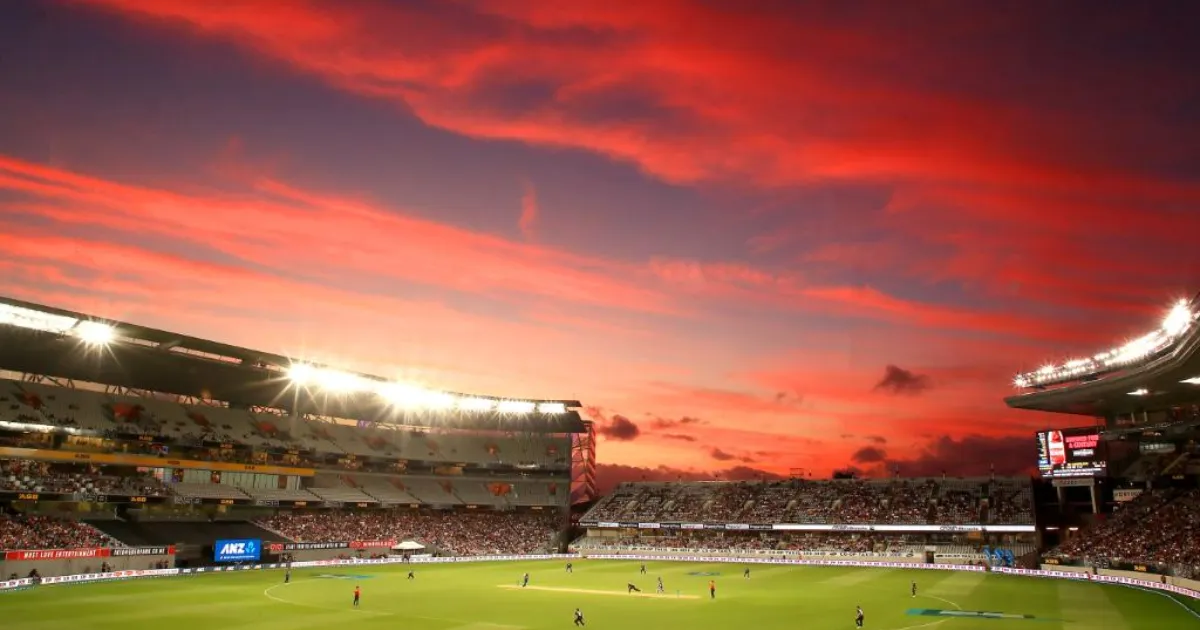
Eden Park is one of the world's most iconic cricket stadiums. Despite its long history and role as New Zealand's national stadium, Eden Park is primarily recognised for its relatively short straight boundaries, which place it among the smallest cricket stadium in the world. The stadium's straight borders are approximately 55-60 meters long, substantially shorter than the average, making it the smallest cricket stadium in the world by boundary. The seating capacity of the stadium is 41,000.
While its square boundaries are relatively larger, the ground's unique form gives batters a significant advantage when playing straight down the field. This is why it has become a very high-scoring venue, especially in white-ball matches like T20s and ODIs. Eden Park not only houses the Auckland Cricket Team but also rugby matches, as well as the World Cups and international matches. From last-ball sixes to record chases, the stadium has seen it all.
| Attribute | Details |
|---|---|
| Also Known As | Eden Park No. 1 |
| Established | 1900 |
| Capacity | 41,000 |
| Boundary Size | 55 meters |
| End Names | Broadcasting End, Terraces End |
| Flood Lights | Yes |
| Home Teams | New Zealand, Auckland |
| Association | New Zealand Cricket (NZC) |
How We Ranked the Smallest Cricket Stadium in the World - Ranking Factors
There are a number of cricket stadiums around the world that are unique in their own way, while some of them are very beautiful, some are the largest ones, and some are even the smallest ones. The game of cricket is enjoyed being played in a variety of stadiums around the world. We have ranked the smallest cricket stadium in the world based on some major facts to rank them accurately and fairly. The major facts follow:
- Average Boundary Length: The Boundary length is an important factor in rating the world's smallest cricket stadium. Unlike seating capacity or infrastructure, boundary dimensions have a direct impact on how the game progresses. Smaller boundaries frequently transform matches into batting carnivals, with sixes and fours falling at regular intervals. Batsmen have a better time clearing the ropes, and even mistimed shots can travel for boundaries. This average boundary length involves both straight and square boundaries.
- Ground Area: The ground area of the stadium involves the whole area covered by the ground, which helps in understanding the overall size of the ground and where smaller grounds with smaller ground area are generally higher in this list of findings, which is the smallest stadium in the world.
- Six-Hitting Frequency: The six-hitting frequency of the stadium tells the average number of sixes being hit on the specific stadium, which could be due to the smaller size of the ground or the batting pitch of that particular stadium. The stadiums where sixes are more frequent, due to shorter boundaries, indicate a smaller size of the stadium, which is validated through the IPL and T20 stats
- Seating Capacity: The seating capacity of the stadium tells the number of fans and their seats that can be accommodated in the stadium, where fans can come to watch and enjoy the game of cricket. While it is not directly related to boundary size but smaller seating often aligns with smaller ground scale.
- ICC/BCCI Classification or Measurement Reports: The ICC and BCCI classification or measurement reports indicate the official data on boundary dimensions as per ICC or BCCI guidelines, when available. This tells that the boundary size of the stadium is verified from reliable sources, and there have not been speculations based on observation of the size of the stadium.
Frequently Asked Questions
Which is the smallest cricket stadium in the world?
+
Which is the smallest cricket stadium in the world?
Eden Park in Auckland, New Zealand is the smallest cricket stadium in the world.
What is the minimum size of a cricket stadium?
+
What is the minimum size of a cricket stadium?
The minimum size of a cricket stadium's outfield, from boundary to boundary square, is 137.16 meters (150 yards).
Is Chinnaswamy Stadium small or big?
+
Is Chinnaswamy Stadium small or big?
M. Chinnaswamy Stadium is considered to be a small stadium.
Which IPL stadium is the biggest?
+
Which IPL stadium is the biggest?
Narendra Modi Stadium, Ahmedabad, is the biggest IPL stadium.
Which is the most beautiful cricket stadium in the world?
+
Which is the most beautiful cricket stadium in the world?
The Himachal Pradesh Cricket Association (HPCA) Stadium in Dharamshala is the most beautiful cricket stadium in the world.
Which is the oldest cricket stadium in the world?
+
Which is the oldest cricket stadium in the world?
Lord's Cricket Ground in London, England, is the oldest cricket stadium in the world.
Conversation
(0 Comments)
Editor's Pick
Editor's Pick




-1752331043424.webp)
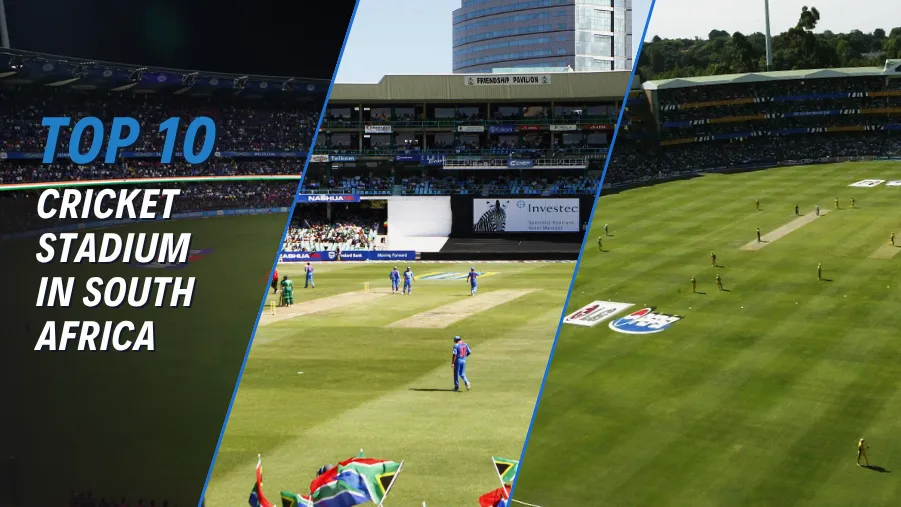
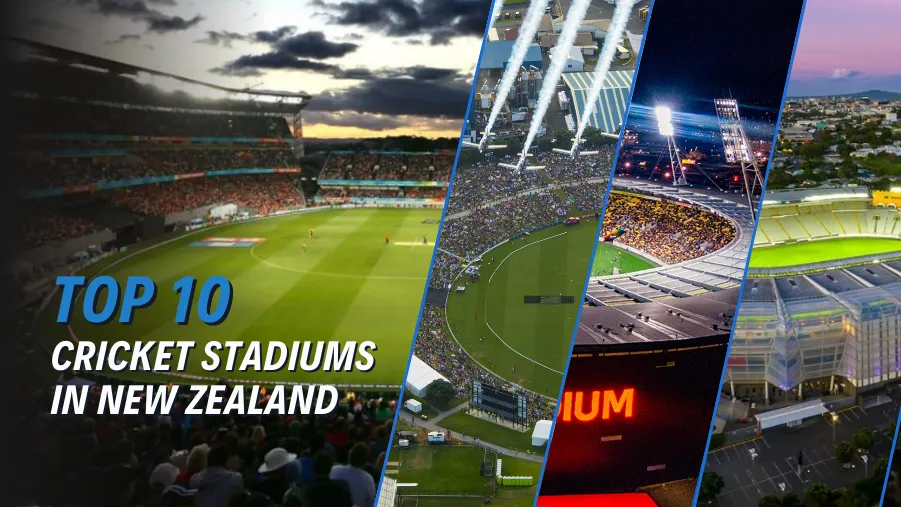


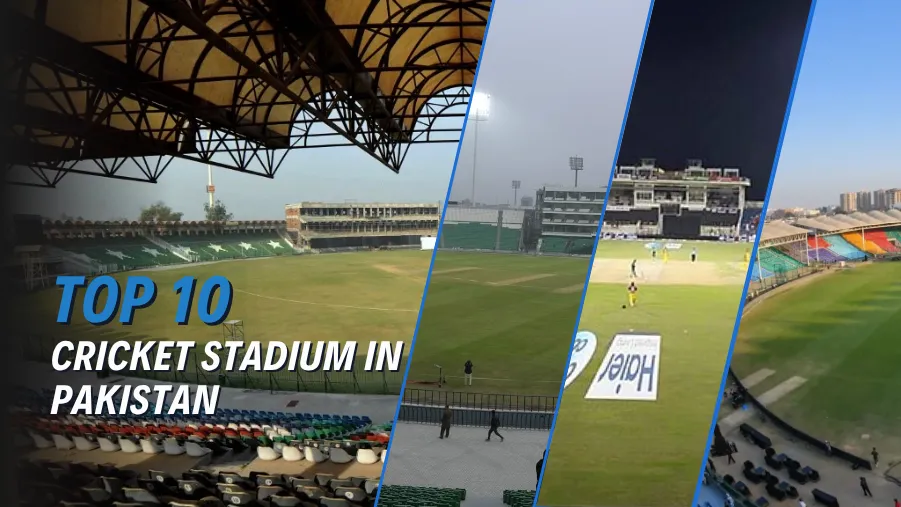
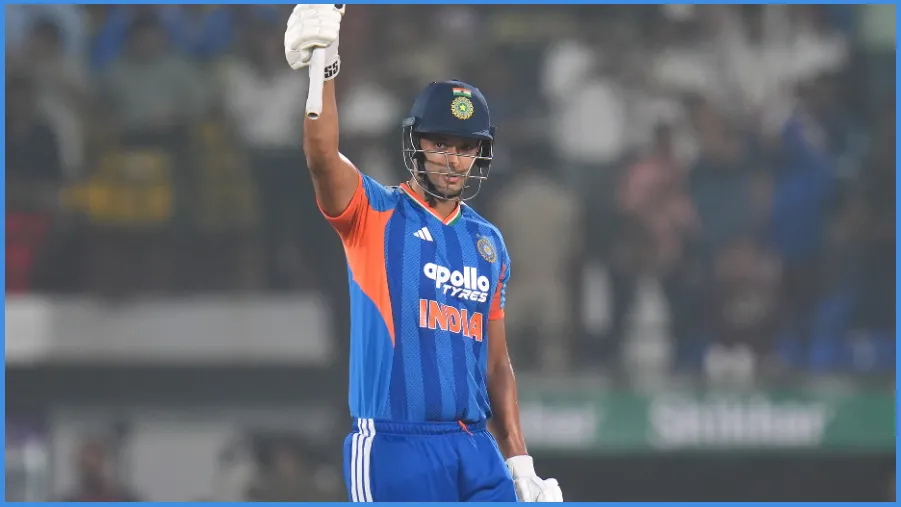

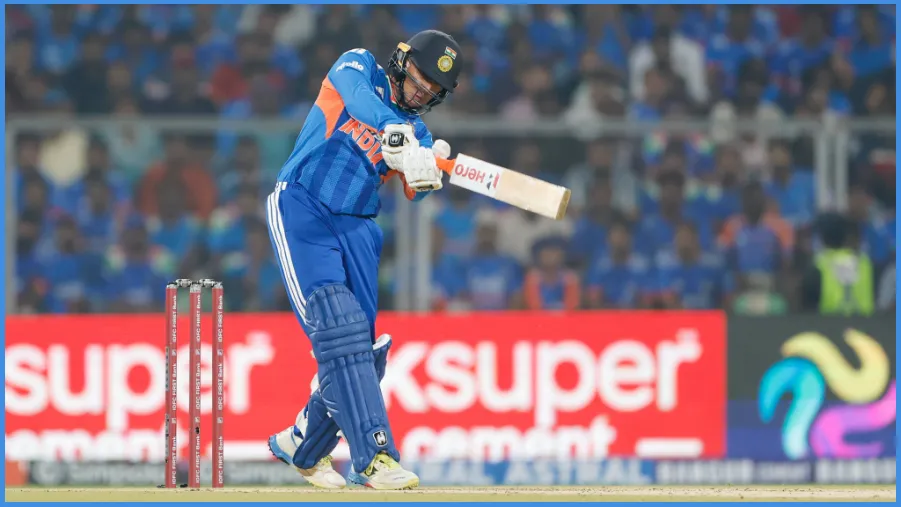
-1771161589831.webp)


